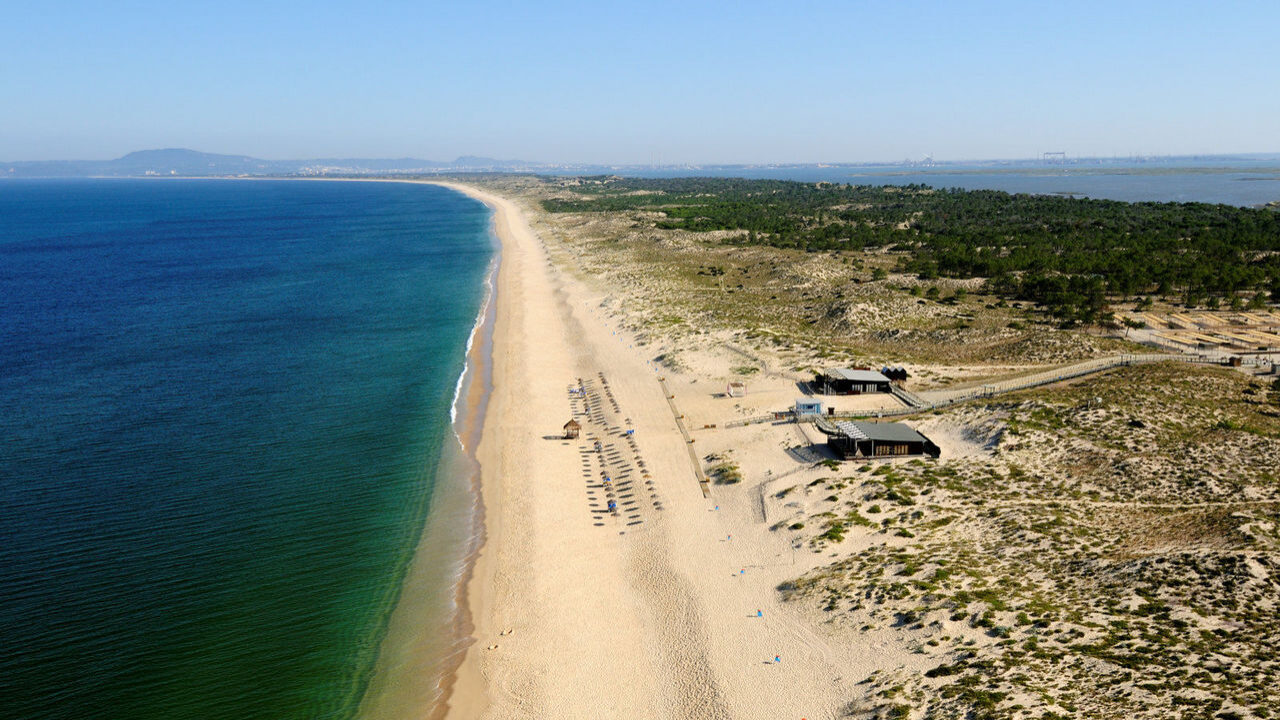Portugal drops one place in competitiveness, but remains ahead of Spain in international ranking
Infrastructure is the area in which Portugal scores best in the global competitiveness ranking. On the other hand, tax policy is the country's least attractive factor.
Portugal fell one place to 37th in the world competitiveness ranking issued annually by the IMD business school, in which Switzerland returned to the top spot. Even so, it continues to outperform countries like Spain (39th) or Italy (43rd). Despite the business and economic challenges that remain, the country stands out for its infrastructure and efficient government.
“This drop shows that, although we’re still ahead of Spain and Italy, there are more and more other countries competing with us that are doing better”, emphasised Filipe Grilo, an economist at Porto Business School, in a statement to ECO.
Portugal’s score stumbles in two of the four key indicators in this study. In business efficiency and economic performance, it falls three places to 42nd (39th in 2024). On the other hand, in government efficiency it rises six places to 35th (41st last year) and in infrastructure it rises one, to 25th.
“When we look at the different variables that make up this ranking, we continue to identify recurring weaknesses, namely the high tax burden, the inefficient justice system and, within companies, we know that there is insufficient training of workers and, with this, the exodus of talent”, says Filipe Grilo. Although these “problems are already well known”, Portugal “continues to have great difficulty” in resolving them.
The study, which evaluates 69 economies, highlights Portugal’s rise to 25th place in terms of infrastructure — the best performance among the four factors analysed. This was helped by the continued good results in education (21st), benefiting from optimisation in basic infrastructure (16th vs 33rd in 2024) and science (26th). In this field, Portugal also stands out for its population growth and secondary school enrolment rate (both in 2nd place). Weaknesses include food waste (61st) and the dependency ratio (56th).
“Portugal has good infrastructures, not just basic ones, but also transport networks, the internet and the evolution of the school enrolment rate — qualification is perhaps the main achievement of recent years”, says the Porto Business School expert. However, Filipe Grilo notes that although the country “produces a lot of talent and a lot of qualified labour, it can’t absorb” the talent.
In terms of government efficiency, Portugal moves up six places (35th place), with progress in public finances (36th vs 37th in 2024), fiscal policy (56th vs 58th), institutional framework (30th vs 42nd) and business legislation (24th vs 25th), while the social framework remains stable at the 25th place. The country stands out for its trust of foreign investors and for having a freely elected government (both 1st place in the ranking). Weaknesses include the high burden of real taxes on people (66th) and the justice system (59th).
In the case of business efficiency, Portugal dropped from 39th to 42nd place, with a mixed performance. Productivity and efficiency fell slightly (47th vs 45th place in 2024), finance dropped one place (45th) and the labour market improved two places (43rd). Management practices remained stable (46th) and attitudes and values fell slightly (28th). Positive highlights include national culture (3rd), female participation in the labour force (8th), and flexibility and adaptability (11th). Weaknesses include the poor performance of the stock markets (62nd), insufficient training of workers in companies (61st) and a high talent drain (61st).
In terms of economic performance, Portugal fell to 42nd place (39th in 2024), reflecting internal challenges. The domestic economy dropped from 44th to 54th place, while international trade rose from 25th to 22nd place, demonstrating greater external dynamism. International investment fell slightly (33rd vs 29th in 2024), employment remained stable (39th) and prices fell two places in the table (36th). The concentration of exports (3rd) and tourism revenues (7th) stand out positively, while weaknesses persist in real GDP per capita (62nd) and youth unemployment (58th).
Filipe Grilo also believes that “what penalises the country the most is its economic performance”. Although Portugal has “resisted” with a “good economic dynamism, there are other countries with a much more favourable economic performance”, adds the head of the Porto Business School.
The availability of skilled labour (80%), the reliability of infrastructure (70.7%), competitive costs (64%) and the population’s high level of education (49.3%) are the main factors that make Portugal attractive for investment and economic activity, according to the results of the survey of more than 70 CEOs of large Portuguese companies and ten national economists. On the other hand, tax policy is the least attractive factor (2.7%).
“The need to diversify the economy, reducing dependence on tourism and exposure to external shocks, as well as strengthening education and training in critical areas such as management, digital technologies and the green transition” are among the warnings that the study points out for the country in this year’s edition.
But that’s not all. The IMD study in partnership with Porto Business School emphasises the need to “reform public services — particularly in health, justice and education — which could contribute to improving efficiency and sustainability”.
The analysis also mentions that “it would be fundamental to reverse the demographic trend through birth policies and integrative immigration”, without forgetting “the revision of bankruptcy laws and business restructuring, which would strengthen the competitiveness of the Portuguese business fabric”.
Switzerland tops the ranking, followed by Singapore and Hong Kong, which stand out for their institutional stability, capacity for innovation and economic dynamism. Also in the top 10 are Denmark (4th), the United Arab Emirates (5th), Taiwan (6th), Ireland (7th), Sweden (8th), Qatar (9th) and the Netherlands (10th).



